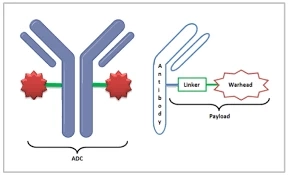The Antibody Drug Conjugates (ADC) market is a driving force behind revolutionary therapeutic advancements in the realm of oncology. This innovative approach represents a compelling fusion of monoclonal antibodies and potent cytotoxic agents, combining precision targeting with therapeutic efficacy. The resultant synergy has ignited a paradigm shift in cancer treatment strategies, offering renewed hope to patients and healthcare professionals worldwide.
At the heart of the ADC market's impact is its unique ability to deliver highly potent payloads directly to cancer cells while sparing healthy tissues. This targeted approach not only enhances treatment efficacy but also mitigates the debilitating side effects commonly associated with traditional chemotherapy. As a result, patients can experience improved quality of life and a higher tolerance for treatment regimens, leading to better overall outcomes.
This versatility underscores the adaptability and wide-reaching applicability of ADCs, allowing for tailored treatment approaches that cater to individual patient needs. With ongoing research and development efforts, the market is witnessing the emergence of innovative ADC candidates, each designed to address specific antigens and pathways implicated in cancer progression.
The Antibody Drug Conjugates Market Size is predicted to increase at a CAGR of 14.0% from 2021 through 2028, reaching a value of US$ 4.29 billion, according to Coherent Market Insights. As a potential strategy for targeted cancer therapy, the market for antibody drug conjugates (ADC) is rapidly growing. ADCs allow precise tumor targeting while limiting harm to healthy cells by combining monoclonal antibodies with strong cytotoxic chemicals. Research, funding, and market expansion are fueled by their promise to transform oncology treatment.
Fueling the momentum of the ADC market are strategic collaborations and partnerships between pharmaceutical companies, research institutions, and regulatory authorities. The FDA's accelerated approval pathways and orphan drug designations have paved the way for expedited development and commercialization of ADC therapies, expediting their journey from bench to bedside. This collaborative ecosystem has catalyzed advancements in manufacturing processes, optimizing production and scalability to meet the growing demand for ADC therapies.
As the ADC market continues to thrive, investments are pouring in, reflecting the industry's confidence in its transformative potential. Biopharmaceutical companies are channeling resources into research, clinical trials, and manufacturing infrastructure to ensure the seamless integration of ADC therapies into standard oncology protocols. This concerted effort is reshaping the landscape of cancer care, offering new avenues for patients to combat the disease and providing oncologists with innovative tools to enhance treatment outcomes.
The Gemigliptin evolution is closely linked to advancements in diabetes management and the quest for innovative therapeutic solutions. Ongoing clinical trials are exploring the potential of Gemigliptin beyond diabetes treatment, expanding its market scope.
In conclusion, the Antibody Drug Conjugates market's role in fueling therapeutic advancements is indisputable. By harnessing the power of precision medicine and targeted therapies, ADCs are not only redefining the way we approach cancer treatment but also inspiring a new era of hope and progress.


